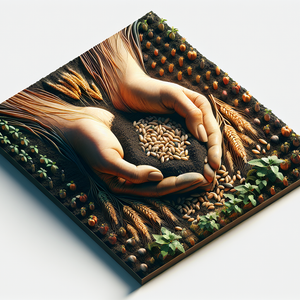Walking in Thinkers’ Footsteps: Philosophy and the Art of Shoemaking

For this shoemaker, creating shoes goes beyond the realm of practicality; it is a deeply philosophical endeavor. “Walking,” they say, “is the most human act. It’s a metaphor for progress, growth, questioning, and searching—all the things philosophy is about.” This belief serves as the foundation of their craft, shaping every cut of leather and every stitch of thread. Each pair of shoes is painstakingly designed to embody the spirit of a philosopher’s ideas. For example, a Nietzsche-inspired pair may feature bold, dynamic lines and a commanding silhouette—a nod to the philosopher’s concept of the Übermensch and his emphasis on individuality and power. Meanwhile, a Kierkegaard shoe reflects existential angst and the leap of faith, with its intricate layers and subtle design complexities. The result is footwear that is not only functional but also deeply meaningful, offering wearers an intimate connection to the ideas that shaped human thought.
Connecting Philosophy to Function
At first glance, the connection between philosophy and shoemaking might seem tenuous, even abstract. How can ideas about ethics, existence, and metaphysics manifest in something as practical as a shoe? The answer lies in the shoemaker’s remarkable ability to translate abstract concepts into tangible designs. Take, for instance, their Socrates sandal. Known as a philosopher who questioned convention and sought the essence of truth, Socrates valued simplicity and clarity. The sandal reflects this ethos with its minimalist design—unadorned, functional, and raw. Its lightweight construction symbolizes freedom and the shedding of unnecessary burdens, mirroring Socrates’ encouragement to focus on the essentials of life. In contrast, the Nietzsche boot is a bold, striking creation that challenges aesthetic norms. Its heavy, asymmetrical design represents Nietzsche’s philosophy of rejecting societal conventions and embracing one’s individuality. The boot’s unapologetic uniqueness reminds the wearer of Nietzsche’s call to transcend the ordinary and create one’s values. Such thoughtful designs blur the line between function and philosophy, allowing the wearer to carry profound ideas with them—literally—through every step they take.
A Walk Through History
The shoemaker’s portfolio is a journey through the history of human thought, with each shoe representing a philosopher’s unique worldview. Their Kant-inspired shoe, for example, boasts a structured, disciplined design, reflecting Immanuel Kant’s emphasis on reason, morality, and the concept of duty. The shoe’s snug fit encourages an upright posture, subtly invoking Kant’s belief in the importance of self-control and adherence to moral law. Then there’s the Heidegger boot, a somber piece with weathered leather and uneven soles. It nods to Martin Heidegger’s concept of “being-toward-death,” a reminder to live authentically in the face of mortality. The boot’s uneven soles create a sensation of instability, compelling the wearer to remain mindful of every step—a poetic reflection of Heidegger’s insistence on living deliberately. Even the lighter aspects of philosophy find their way into the shoemaker’s designs. A playful Voltaire slipper, for instance, features elegant details and a touch of satire, mirroring the philosopher’s wit and critique of societal norms.
Philosophy in Everyday Life
What makes this shoemaker’s work truly revolutionary is their ability to bring philosophy out of academia and into everyday life. In a world where philosophical discourse often feels inaccessible—sealed between the pages of dense books or confined to lecture halls—these shoes invite people to engage with profound ideas through a tactile and personal experience. Imagine slipping on a pair of Kierkegaard loafers before heading out for the day. As you lace them up, you’re reminded of the philosopher’s belief in the “leap of faith”—the idea that life’s greatest truths require courage, trust, and a willingness to face uncertainty. Or consider the Nietzsche boot, its weight and strength grounding you during a difficult moment, serving as a physical representation of resilience and self-determination. Through these creations, the shoemaker has made philosophy accessible and tangible, transforming abstract concepts into something people can experience with every step they take.
The Shoemaker’s Resume: A Philosopher-Cobbler Extraordinaire
If this philosophical shoemaker were to draft their resume, it might read like this: Name: [Redacted for Mystery] Profession: Shoemaker and Philosopher Location: A timeless workshop on a cobblestone street Objective: To merge philosophy and craftsmanship, creating footwear that connects people to the great thinkers of history. Skills: Mastery of traditional shoemaking techniques, Deep understanding of Western and Eastern philosophical traditions, Exceptional ability to translate abstract ideas into tangible designs, Proficient at engaging clients in philosophical discourse while fitting shoes. Work Experience: Philosophical Footwear Artisan, 2010–Present - Designed and handcrafted shoes inspired by philosophers like Nietzsche, Kierkegaard, and Socrates. - Created wearable representations of complex ideas, blending form and function. - Advocated for the integration of philosophy into everyday life through art and design. Notable Achievements: Developed the Socrates sandal, a minimalist design embodying the pursuit of truth. Crafted the Nietzsche boot, a bold statement piece symbolizing individuality and resilience. Launched a collection of shoes representing the history of human thought, from Kant’s moral rigor to Heidegger’s existential authenticity. Fun Fact: Never pets puppies—an odd quirk stemming from a belief in maintaining focus and discipline during creative endeavors.
The shoemaker’s work is a testament to the power of blending art, craft, and philosophy. By transforming profound ideas into functional objects, they’ve created something truly unique: shoes that not only carry you forward physically but also challenge you mentally and spiritually. In a world obsessed with speed and convenience, this shoemaker’s creations remind us to slow down, reflect, and engage with life’s deeper questions. They serve as a daily invitation to walk—not just through streets and paths—but through ideas, history, and meaning.
Philosophical Product Designer
boutique design studios, high-end luxury brands, or niche art collectives
Description
Translate abstract philosophical concepts into tangible, functional products that evoke deeper meaning and engagement.
Collaborate with artisans, engineers, and marketers to create items that fuse intellectual depth with practical utility.
Unique Skill
A strong background in philosophy paired with expertise in industrial or product design.
Luxury Footwear Designer
luxury brands like Gucci, Hermès, or bespoke ateliers
Description
Design and handcraft high-end footwear that blends aesthetics, functionality, and storytelling.
Incorporate unique narratives, such as cultural or philosophical themes, into shoe collections.
Unique Skill
Mastery of artisanal shoemaking techniques alongside creative storytelling abilities.
Cultural Heritage Artisan
workshops, museums, or cultural preservation organizations
Description
Craft items, such as shoes, textiles, or ceramics, inspired by historical figures, philosophies, or cultural traditions.
Work in workshops, museums, or cultural preservation organizations to keep traditional crafts alive while integrating modern influences.
Unique Skill
Deep understanding of historical and cultural contexts combined with mastery of traditional craftsmanship methods.
Artisan Brand Storyteller
boutique brands, artisan workshops, or lifestyle companies like Everlane or Aesop
Description
Develop compelling narratives for artisan brands that highlight the philosophical or cultural inspirations behind their products.
Collaborate with designers and craftspeople to communicate their vision through marketing, social media, and product launches.
Unique Skill
Exceptional storytelling ability, with a focus on weaving philosophical or historical themes into branding strategy.
Academic-Craft Consultant
creative agencies, universities, or cultural think tanks
Description
Advise on projects that merge academic disciplines (like philosophy, art history, or literature) with creative industries, such as fashion or design.
Help brands or creators infuse their work with intellectual depth, ensuring authenticity and cultural resonance.
Unique Skill
Advanced degree in humanities (e.g., philosophy, anthropology) paired with an understanding of creative production processes.


